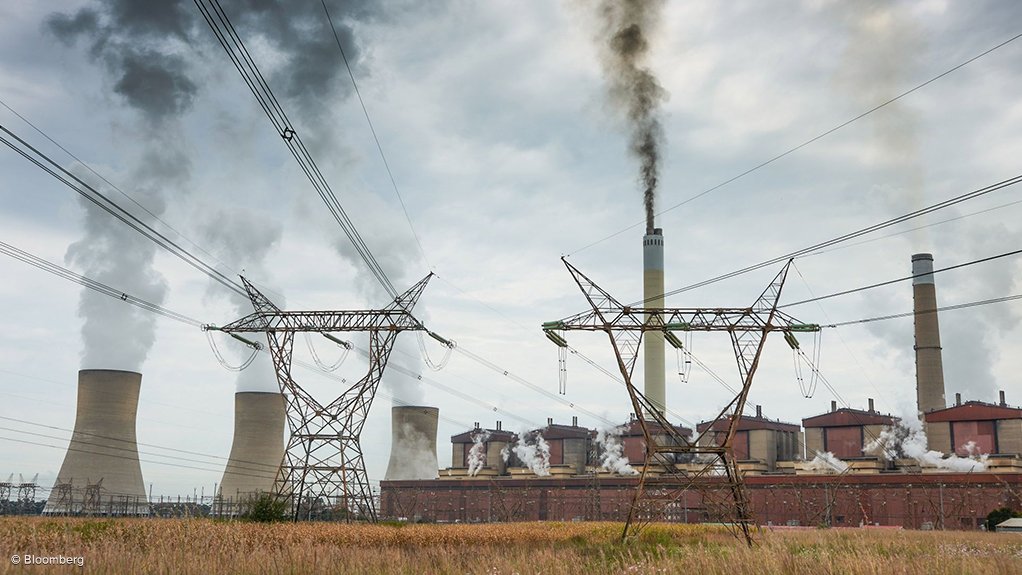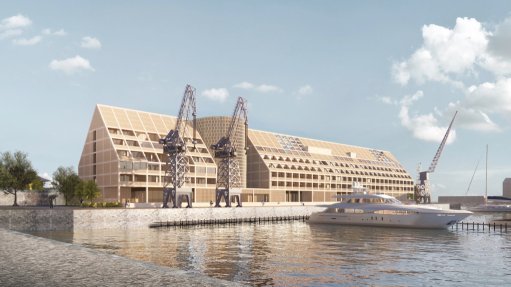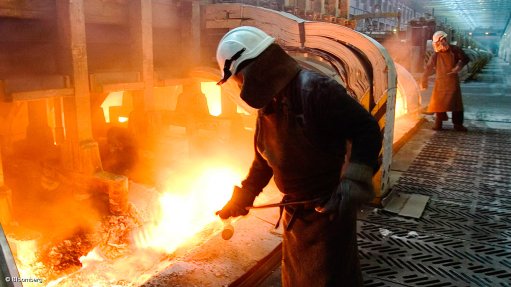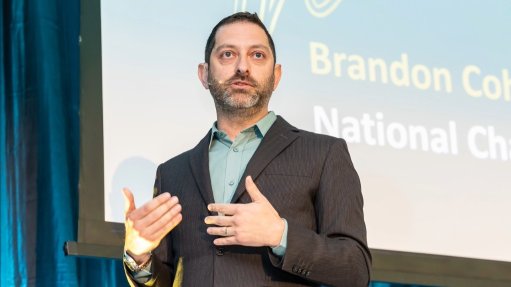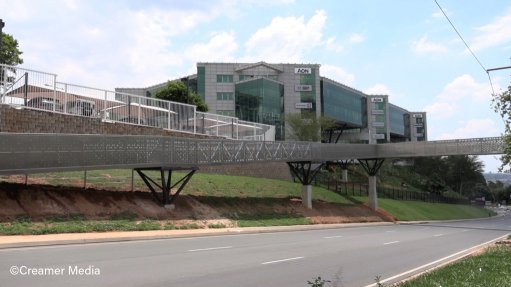Industry reacts to the good and the bad of SoNA 2023
President Cyril Ramaphosa’s State of the Nation Address (SoNA) was delivered amid a severe crises across critical economic and social spheres in South Africa, with industry respondents recognising both the good and the bad ideas contained in government’s plans.
Business Unity South Africa (Busa), firstly, expressed concern about the President likening the Covid-19 crisis to that of the energy crisis and saying that the nation will emerge resilient and ever hopeful, when in fact the energy crisis is not a result of natural disaster, but of poor governance and a lack of decisive leadership.
Busa adds that the energy crisis has been exacerbated by a weak State that is hesitant to work in real partnership with business, despite several offers by business to support and work with government.
The organisation adds that SoNA lacked detail of how government plans to work with stakeholders going forward, which Ramaphosa may respond to during the upcoming SoNA debate.
While Busa is concerned about many elements of the SoNA, it welcomes the more positive changes such as the launch of spectrum, the lifting of the ceiling on embedded energy and government going to market to procure a further tranche of renewable energy.
However, the organisation says these developments should have been announced and implemented years ago already.
“If the embedded energy ceiling had been lifted four years ago, when business called for it, the energy environment would look very different today. Nonetheless, business will commit to bringing 3.6 GW of power to the grid in the next two years from investments in embedded energy,” Busa notes.
The organisation has urged government to demonstrate its commitment to working with business. “Implementation through bilateral initiatives will help develop a workable social compact that is anchored on practical implementation, rather than mere words on paper,” Busa points out.
Financial services provider Nedbank says the President should have placed more emphasis on curbing crime and corruption, since these have been the root causes behind the failures of the State, Eskom and other State-owned enterprises.
“It seems impossible to us to end loadshedding without rooting out all forms of criminal activity entrenched and surrounding Eskom’s operations. Equally, government’s ability to deal with poverty and unemployment would be greatly amplified if fewer scarce resources were lost to corruption, if infrastructure could be protected from theft and sabotage and if citizens felt safe and secure from violence.”
ELECTRICITY MINISTER
Commenting on Ramaphosa’s announcement that a new Minister of Electricity will be appointed to oversee the electricity crisis, Busa says it is a bad idea that will add to the confusion and turf war already present across the Ministries of Public Enterprises and Energy.
Busa deems the move as another example of failure on government’s part to take bold decisions and opting instead for the soft, but expensive, option of adding another Ministry, rather than holding the existing Ministers accountable.
The Organisation Undoing Tax Abuse agrees, saying the appointment of another Minister only adds weight to an already bloated and lacklustre Cabinet. The civil rights organisation questions who will be accountable for what between the three Ministers of Public Enterprises, Mineral Resources and Energy, and Electricity.
Business Leadership South Africa (BLSA) suggests that the President delineate clear responsibilities between the different Ministers. The organisation hopes that the new Minister will be able to accelerate the processes needed to address both the short-term imperative of stopping loadshedding and the longer-term need to accelerate the country’s electricity generation capacity.
Trade union the Association of Mineworkers and Construction Union comments that the appointment of a new Minister ushers in a new opportunity for cadre deployment and marks an expansion of a Cabinet that is already bloated, aged and tired.
Industry body Agri SA also warns that the powers of the new Minister must be distinguished from the other Ministers to avoid creating a bureaucratic nightmare that hinders the resolution of the energy crisis further.
The South African Institution of Civil Engineering agrees, saying the Minister tasked with looking after energy will undoubtedly overlap with, and possibly confuse, the established roles of Gwede Mantashe and Pravin Gordhan, as Ministers of Mineral Resources and Energy, and Public Enterprises, respectively.
SELF GENERATION
BLSA and renewable energy company SOLA Group have welcomed the President’s suggestion to households and businesses that they take up more rooftop solar installations.
BLSA deems it positive that the Minister of Finance will outline in the Budget speech later this month how government will assist households and businesses in the form of tax incentives, for example, to take up solar.
BLSA also lauds the National Treasury for working on adjustments to the bounce-back loan scheme to help small businesses invest in solar equipment, and to allow banks and development finance institutions to borrow directly from the scheme to facilitate the leasing of solar panels to their customers.
SOLA says the SoNA showed Ramaphosa’s intention to raise the stakes in handling the electricity crisis by dedicating more resources and removing obstacles to progress energy production. CEO Dom Wills hopes the “acceleration of energy projects” mentioned by the President will mean much less red tape for connecting new plants.
He welcomes the tax breaks for rooftop solar and loans to small businesses, in particular, adding that 5 GW of rooftop solar would greatly reduce the need for loadshedding.
World Wide Fund for Nature South Africa (WWF SA) urges the Minister of Finance to divert a significant portion of financial support to low-income households. The environmental organisation believes that appropriate incentives, redirected subsidies and dedicated programmes would ensure that all South Africans benefit from this emerging energy market.
Moreover, trade union Uasa says the President’s R1.5-trillion energy transition plan can open up new investments, new industrialisation and create new jobs, provided that realistic and constructive efforts to this end are put forth.
WWF SA warns that government’s emergency power procurement plans within six months to close the immediate supply gap should consider options that complement the country’s long-term energy vision and not lock in emissions.
Consulting Engineers of South Africa (Cesa) says new energy investments need to be preceded by professionalisation of the public service, which is critical in delivering electricity and many other services and infrastructure to citizens and businesses.
Cesa states that while all hands are needed on deck to deal with the macro infrastructure issues such as energy and water security, government needs to simultaneously accelerate the pace of fixing the micro infrastructure delivery systems.
“Even if we get enough water or energy, if our local municipal distribution systems do not work, there will be no water or electricity for the people. All too often, citizens have no electricity and go hours and even days without after loadshedding cycles have ended. We need to fix this at all levels,” says Cesa CEO Chris Campbell.
Meanwhile, Greenpeace Africa says that while South Africa is indeed defined as a nation by hope and resilience, as stated by Ramaphosa, South Africa’s reserves are running low. The organisation says the President will not inspire more hope with a good speech, but with decisive action on not only the electricity crisis but also the climate and growing unemployment crises.
North-West University Business School economist Professor Raymond Parsons echoes this sentiment, highlighting that implementation and accountability are paramount to South Africa’s recovery. “The words of SoNA must be backed by credible action.”
Article Enquiry
Email Article
Save Article
Feedback
To advertise email advertising@creamermedia.co.za or click here
Comments
Announcements
What's On
Subscribe to improve your user experience...
Option 1 (equivalent of R125 a month):
Receive a weekly copy of Creamer Media's Engineering News & Mining Weekly magazine
(print copy for those in South Africa and e-magazine for those outside of South Africa)
Receive daily email newsletters
Access to full search results
Access archive of magazine back copies
Access to Projects in Progress
Access to ONE Research Report of your choice in PDF format
Option 2 (equivalent of R375 a month):
All benefits from Option 1
PLUS
Access to Creamer Media's Research Channel Africa for ALL Research Reports, in PDF format, on various industrial and mining sectors
including Electricity; Water; Energy Transition; Hydrogen; Roads, Rail and Ports; Coal; Gold; Platinum; Battery Metals; etc.
Already a subscriber?
Forgotten your password?
Receive weekly copy of Creamer Media's Engineering News & Mining Weekly magazine (print copy for those in South Africa and e-magazine for those outside of South Africa)
➕
Recieve daily email newsletters
➕
Access to full search results
➕
Access archive of magazine back copies
➕
Access to Projects in Progress
➕
Access to ONE Research Report of your choice in PDF format
RESEARCH CHANNEL AFRICA
R4500 (equivalent of R375 a month)
SUBSCRIBEAll benefits from Option 1
➕
Access to Creamer Media's Research Channel Africa for ALL Research Reports on various industrial and mining sectors, in PDF format, including on:
Electricity
➕
Water
➕
Energy Transition
➕
Hydrogen
➕
Roads, Rail and Ports
➕
Coal
➕
Gold
➕
Platinum
➕
Battery Metals
➕
etc.
Receive all benefits from Option 1 or Option 2 delivered to numerous people at your company
➕
Multiple User names and Passwords for simultaneous log-ins
➕
Intranet integration access to all in your organisation



